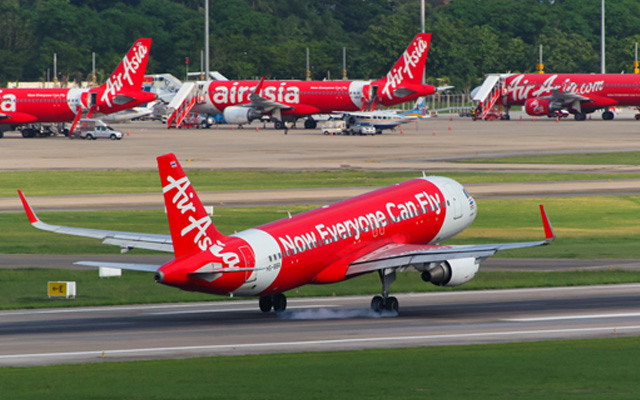The Malaysian travel trade have rallied on AirAsia’s side after the airline recently launched a petition to protest against the additional RM23 (US$5) passenger service charge (PSC) for passengers using klia2 to fly to destinations outside of South-east Asia.
The petition – launched on August 8 on www.change.org with versions available in English, Malay, Chinese and Tamil – has, as at press time, received more than 64,739 supporters.

When contacted, a source from AirAsia familiar with the campaign said: “The online petition was to give Malaysians an avenue to speak up as well as to create better awareness and to educate the public on the issue at hand.
“For example, many think that the PSC is borne by airlines, so why should passengers be bothered? With this information going out using layman terms, it makes people understand that they are the ones forking out money to pay for the PSC.”
However, the source did not comment on AirAsia’s next course of action once the target of 100,000 signatures is reached.
Following a recent High Court ruling, AirAsia has since August 9 started collecting the increased PSC for klia2 flight bookings, a move that the airline claimed was done “under protest” after it lost a lawsuit against Malaysia Airports Holdings Berhad (MAHB).
Industry players TTG Asia spoke to questioned MAHB’s move to raise the PSC for passengers using klia2, designed and operated as a LCC terminal, to that of full-service KLIA, and warned that the increased PSC may deter travel to the country.
Malaysian Inbound Tourism Association president, Uzaidi Udanis, asked: “I don’t see the logic of charging the same rate between KLIA and klia2 when the latter has lesser facilities. Since the PSC is levelled up to be the same between KLIA and klia2, I wonder if there is a possibility for airlines to choose whether they can fly to or from KLIA?
“If there were such a possibility, then in the long-term, klia2 will lose out. Passengers will prefer to fly from KLIA as the distance to the departure gates is shorter, and the airport has better signages and a classier ambiance.”
He added: “The PSC charges at klia2 should be lowered as that will attract more low-cost foreign airlines to fly to klia2. To further promote tourism, I think the government should look at opening up the management of new airports to the private sector. It will create competition and help make Malaysia a primary hub. Right now, we are a secondary hub to Singapore and Bangkok, which have managed to attract more foreign airlines.”
While there are no known statistics on the impact of the increased PSC on travellers, John Chan, business advisor to ISMA Holidays, is worried that a silent majority of travellers using LCCs “may choose to defer their plans, change course or curtail the length of their travel, especially affinity travellers”.
Presanth Chandra, group CEO, Apollo Conferences, expressed concerns that higher tax rates at klia2 would erode Malaysia’s appeal to foreign travellers, especially for frequent flyers and repeat visitors to the country.
“Malaysia needs to strengthen arrivals into the country. Our current challenge is an oversupply of hotel rooms and tourism products amid lesser demand, (a result of) unnecessary taxes and flight connectivity, among other factors,” stated Chandra.
AirAsia maintains that consumers should not be charged a higher PSC because klia2 was designed and operated as an LCC terminal. The PSC has always been lower at klia2, up until 2018 when the rate was increased and equalised for reasons unknown, it said in a statement.
The PSC rates at klia2 had more than doubled in recent years, increasing from RM32 (until December 31, 2016) to RM50 (from January 1, 2017) and to the current RM73 (from July 1, 2018).
According to Malaysian Aviation Commission, the equalisation of the PSC rate across all airports in Malaysia arose from the need to move towards a more internationally accepted cost-based mechanism for charging PSC, which is consistent with the principles outlined by ICAO, the need to lower the subsidies at klia2, the need to facilitate air traveller welfare, and the fact that PSC rates in Malaysia for both domestic and international departures will remain amongst the lowest regionally and globally.




















